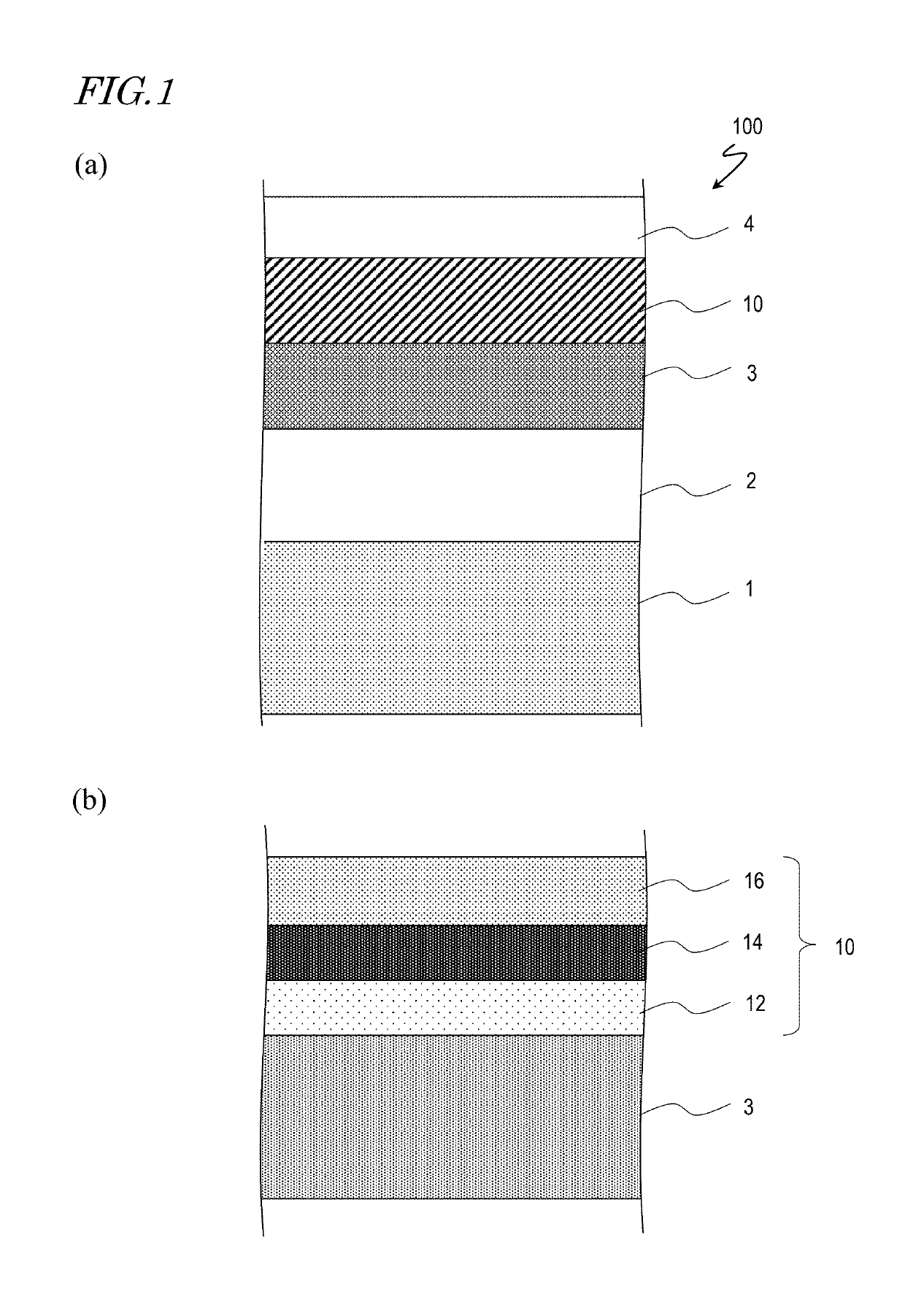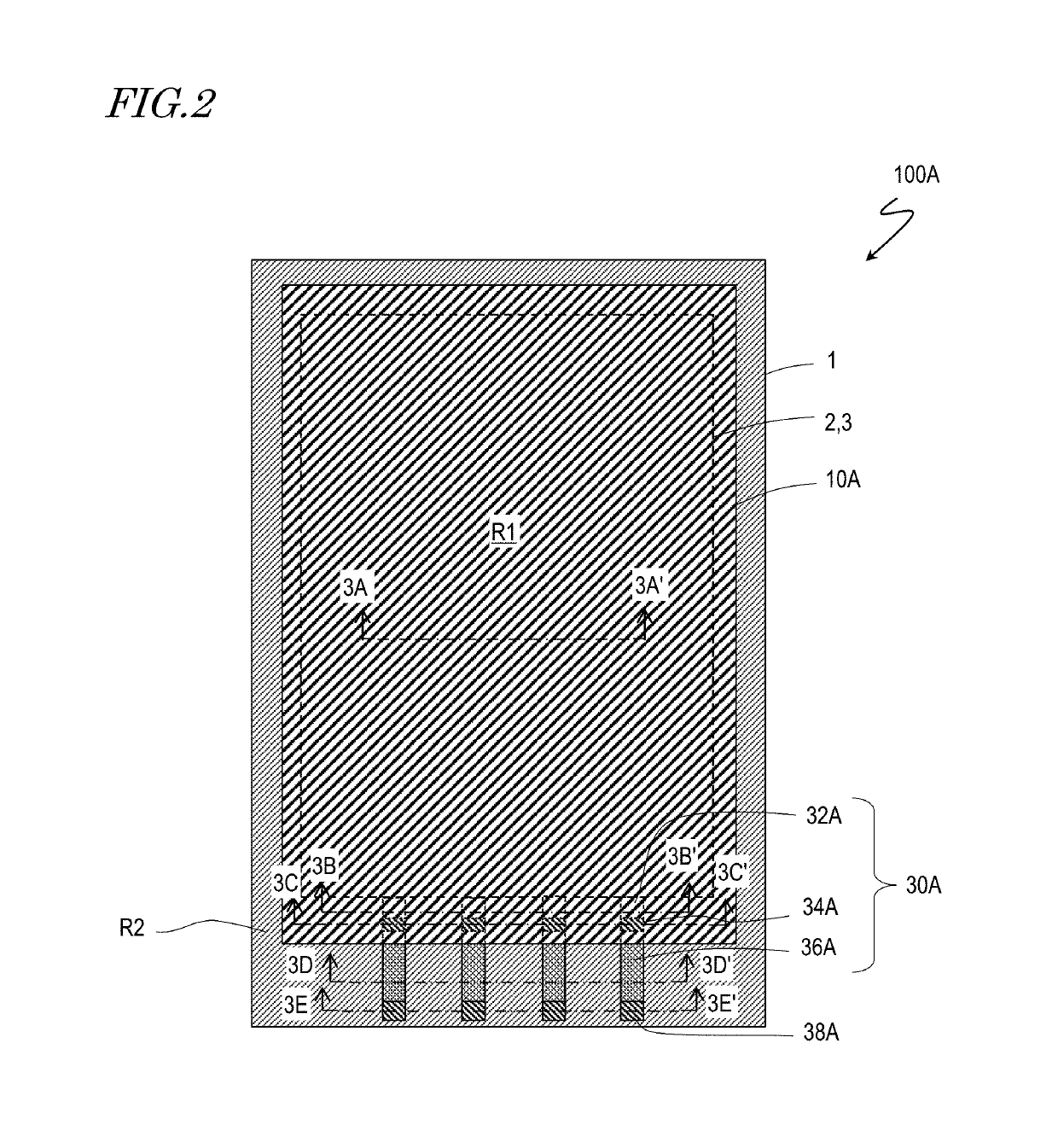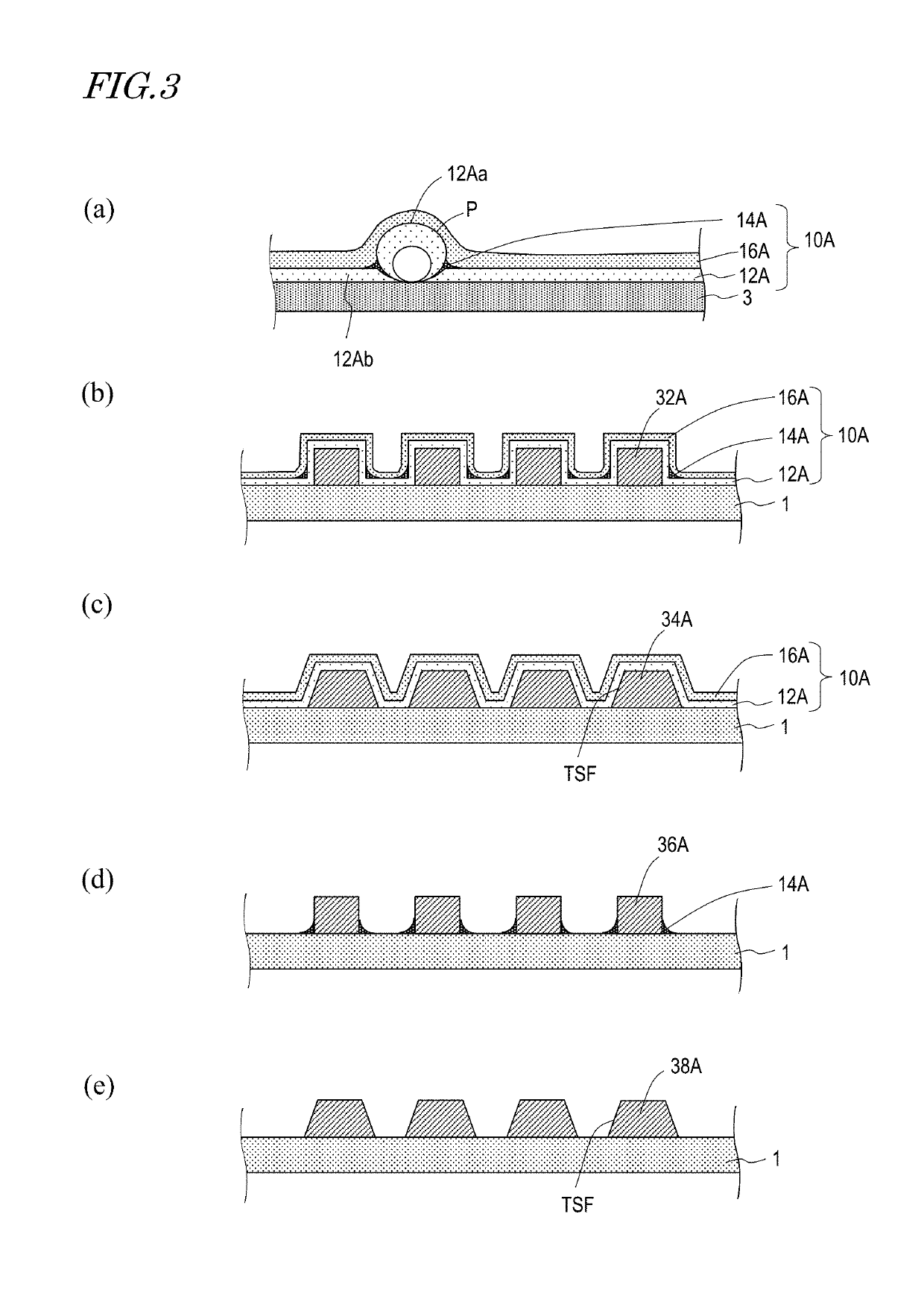Organic electroluminescent device and method for producing same
a technology of electroluminescent devices and organic materials, applied in the direction of organic semiconductor devices, identification means, instruments, etc., can solve the problems of low mass-productivity, uneven display, limited bendability of oled display devices, etc., and achieve the effect of improving mass-productivity and moisture resistance reliability
- Summary
- Abstract
- Description
- Claims
- Application Information
AI Technical Summary
Benefits of technology
Problems solved by technology
Method used
Image
Examples
embodiment 1
[0082]With reference to FIG. 2 through FIG. 5, an OLED display device and a method for producing the same in embodiment 1 according to the present invention will be described.
[0083]FIG. 2 is a schematic plan view of an OLED display device 10A in embodiment 1 according to the present invention.
[0084]The OLED display device 100A includes the flexible substrate 1, the circuit (may be referred to as a “driving circuit” or a “back plane circuit”) 2 formed on the substrate 1, a plurality of the OLEDs 3 formed on the circuit 2, and a TFE structure 10A formed on the OLEDs 3. A layer including the plurality of OLEDs 3 may be referred to as an “OLED layer 3”. The circuit 2 and the OLED layer 3 may share a part of components. The optional polarization plate (see reference numeral 4 in FIG. 1) may further be located on the TFE structure 10A. In addition, for example, a layer having a touch panel function may be located between the TFE structure 10A and the polarization plate. Namely, the OLED d...
embodiment 2
[0113]The method for producing the OLED display device in embodiment 1 includes, for example, the following steps. In at least a portion of each of the plurality of lead wires 30A, the forward tapering side surface portion is formed at least at a lowermost portion of each of two exposed side surfaces of the lead wire 30A. The forward tapering side surface portion is formed to have a tapering angle smaller than 90 degrees in a cross-section parallel to the line width direction of the lead wire 30A. Next, the first inorganic barrier layer 12A is formed selectively on the active region R1. Then, a vapor-like or mist-like acrylic monomer is supplied into the chamber. In the step of condensing the acrylic monomer on the first inorganic barrier layer 12A, the acrylic monomer is condensed so as not to be present on the portion of each lead wire 30A having the forward tapering side surface portion. The condensed acrylic monomer is irradiated with light (e.g., ultraviolet light) to form the ...
PUM
 Login to View More
Login to View More Abstract
Description
Claims
Application Information
 Login to View More
Login to View More - R&D
- Intellectual Property
- Life Sciences
- Materials
- Tech Scout
- Unparalleled Data Quality
- Higher Quality Content
- 60% Fewer Hallucinations
Browse by: Latest US Patents, China's latest patents, Technical Efficacy Thesaurus, Application Domain, Technology Topic, Popular Technical Reports.
© 2025 PatSnap. All rights reserved.Legal|Privacy policy|Modern Slavery Act Transparency Statement|Sitemap|About US| Contact US: help@patsnap.com



